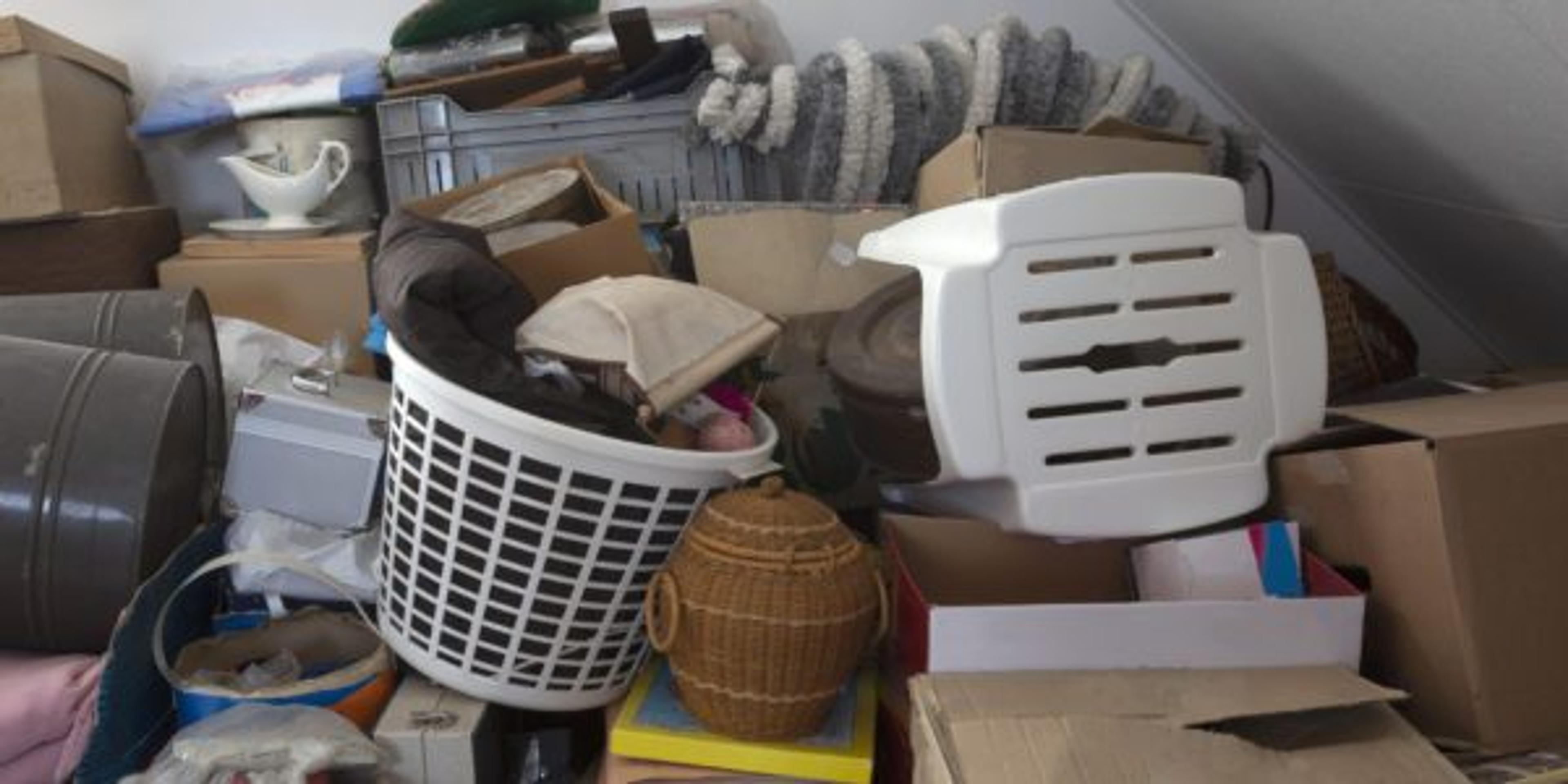How to Talk to a Loved One About Hoarding
Jake Newby
| 4 min read

If you have a close friend or family member who hoards, the situation can be emotionally taxing on both parties.
A person who hoards often creates cramped living spaces by piling their floors, furniture, countertops, sinks, stoves, and desks with old and new belongings. When there’s no more room inside, the clutter can spread to the garage, cars and even the yard.
There’s an extreme attachment to these items due to a perceived need to save them, even possessions that seem useless and without value. Most often, people hoard common possessions, like paper, mail, newspapers, books, clothing, and containers.
Attempts to part with these items can create distress and lead to decisions to save them.
Your list of concerns about a loved one’s hoarding can be lengthy. They can include:
- Feelings of embarrassment or disconcert at the way they live
- Potential fire and tripping hazards, and health code violations
- The financial implications of excessive shopping
- Stress over the conflict it can create in a relationship
- Unsanitary living conditions
If you live with a person who hoards, the emotional distress is obviously magnified, because it affects your daily life.
Hoarding is a mental health condition
Hoarding disorder (HD) affects approximately 2.6% of the population, with higher rates for people over 60 years old and people with other psychiatric diagnoses, like anxiety and depression, according to the American Psychiatric Association.
Hoarding is classified as obsessive-compulsive disorder (OCD) by the International OCD Foundation. Approximately 1 in 4 people suffering with OCD are compulsive hoarders.
How can I talk to and help a loved one who hoards?
Examine the situation: You should educate yourself on hoarding disorder before broaching the subject with a loved one. Part of that educating process could entail taking a step back and examining whether you and your family are “accommodating” the disorder.
For example, a brother might save magazines each month from his subscription and give them to his sister, who suffers from HD. Maybe there are no examples of that within your family, but you could try creating a list of ways in which you may be accommodating the hoarding and take steps to change habits from there.
Effectively communicate: It’s important to avoid being judgmental and risk shaming or socially isolating the person in your life that hoards. Those who suffer from the disorder may react differently when you discuss hoarding; some people feel shame and a lack of control and others may not see it as a problem.
Either way, remember that people who hoard will likely take exception if you refer to their possessions as “junk” or “trash,” and refrain from saying things like “this place is such a mess.” You should use the same terms they use – like “collections” or “things” – to build trust and understanding.
Ask before you act: Always ask before cleaning or shuffling objects around. Although you may think you’re helping by decluttering, your loved one could feel controlled or disrespected. Asking first builds trust.
Try to relate: Consider brief get-togethers with your loved one in their home. If you believe they feel judged, this step could help them feel a little more accepted.
Alter expectations: According to the International OCD Foundation, expecting a loved one to show complete organization and cleanliness – and going from their current environment to zero clutter – is unrealistic. At least at first.
The Foundation suggests encouraging family members to set goals and expectations that focus on reducing the harmful consequences of hoarding. This strategy is known as harm reduction.
An example of harm reduction is explaining the safety risks presented by your loved one’s hoarding. Discussing the risk of accidents and how to eliminate fire hazards could set a change in motion.
Consider professional help: You can’t force someone to seek help, but if they are receptive, you can at least present options and resources to get them the help they need.
In some communities, public health agencies can assist in addressing problems of hoarding and getting help for those affected.
Photo credit: Getty Images
Keep reading:





